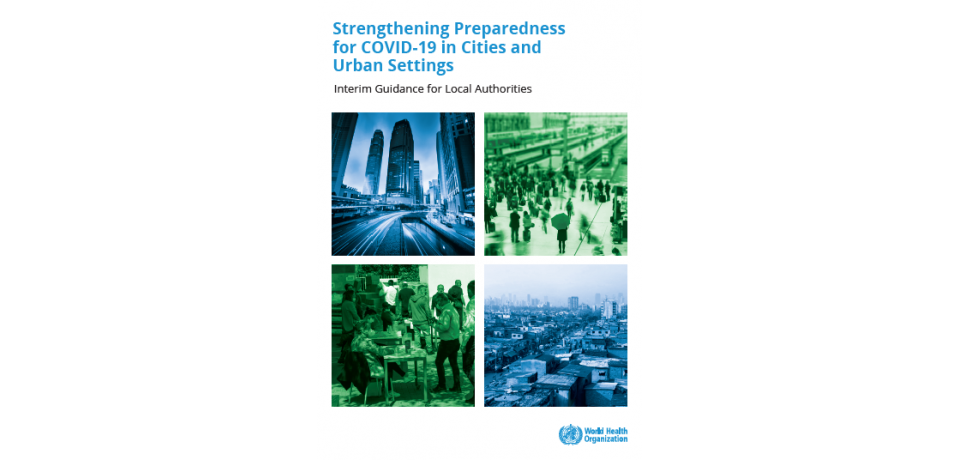Strengthening Preparedness for COVID-19 in Cities and Urban Settings: Interim Guidance for Local Authorities
Related Sustainable Development Goals and Global Compact for Migration Objectives
This guidance document is to support local authorities, leaders and policy-makers in cities and other urban settlements in identifying effective approaches and implementing recommended actions that enhance the prevention, preparedness and readiness for COVID-19 in urban settings, to ensure a robust response and eventual recovery. It covers factors unique to cities and urban settings, considerations in urban preparedness, key areas of focus and preparing for future emergencies.
COVID-19 has had enormous impacts on mobility trends within, to and from cities and anticipating these effects is key to adequately prepare for health emergencies. Additionally, rapid rural–urban migration in many parts of the world has resulted in unmanaged and unplanned urbanization, including the development of informal settlements. A substantial proportion of those living in such settlements are often unemployed or dependent on informal economies to survive. There can also be a great variety of sources of information, including word-of-mouth, leading to an increased risk of misinformation that can compound health emergency challenges in urban areas.
One of the 12 considerations identified in planning for urban preparedness for COVID-19 is migration-specific:
Ensure adequate housing, reduce the risk of becoming homeless and anticipate outward-migration and mobility of population subgroups, including liaison with the local authorities at their destinations to contain further spread and ensure social protection and basic needs.
See also the accompanying checklist with practical actions for cities.
